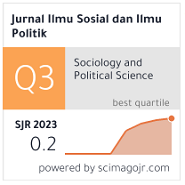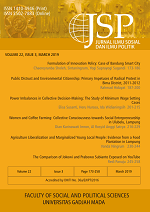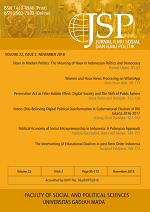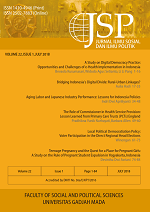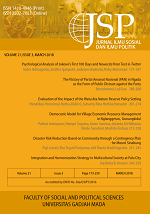Kecenderungan Politik Internasional Kontemporer
https://doi.org/10.22146/jsp.11141
Riza Noer Arfani
(1*)
(1) Universitas Gadjah Mada
(*) Corresponding Author
Abstract
Trends in contemporary international polities in the post-cold war era should be observed and learned in the following phenomena: urupolansm of military and political forces under US hegemony, and mulupolansm in international economic forces. The relatively novel sacra-cultural values of the so-called 'pragmatr-sm ' and 'economism' are proliferating in response to and alongside with the most recent development of world capitalism. At the same time, actors in the international arena multiplies as the need to solve and manage various problems and issues crosses over the mandate and legitimacy of the state — long considered as the dominant actor in international politics.
DOI:
https://doi.org/10.22146/jsp.11141
Article Metrics
Abstract views : 2937
|
views : 29135
Refbacks
There are currently no refbacks.
Copyright (c) 2016 Jurnal Ilmu Sosial dan Ilmu Politik
<div class="statcounter"><a title="Web Analytics" href="http://statcounter.com/" target="_blank"><img class="statcounter" src="//c.statcounter.com/10932543/0/2e122c85/0/" alt="Web Analytics"></a></div> <div class="statcounter"><a title="Web Analytics Made Easy - StatCounter" href="http://statcounter.com/" target="_blank"><img class="statcounter" src="//c.statcounter.com/10932543/0/2e122c85/0/" alt="Web Analytics Made Easy - StatCounter"></a></div> View My Stats







